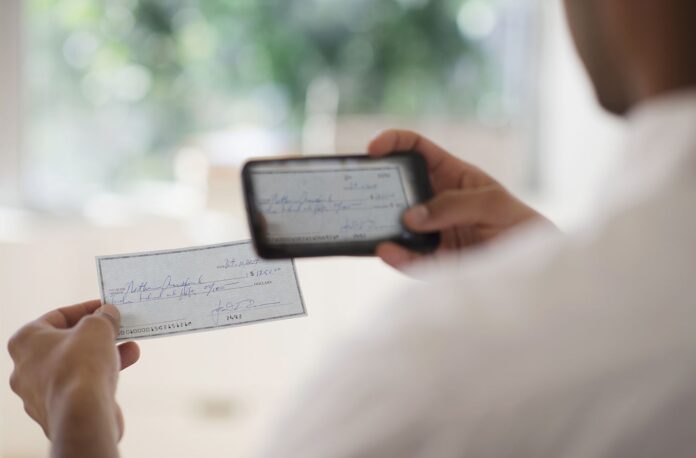
ChexSystems is a consumer credit reporting agency that tracks activity related to closed checking, savings, and other deposit accounts at banks and credit unions. If you’ve ever had issues with a deposit account, such as a bounced or returned check, it’s possible that you might have a ChexSystems profile. While your ChexSystems history doesn’t directly affect your FICO credit scores, it can have an impact on your ability to open new bank accounts.1
KEY TAKEAWAYS
- ChexSystems is a consumer credit reporting agency that collects information on closed deposit accounts at banks and credit unions.
- The type of activity that ChexSystems tracks is related to issues with deposit accounts, such as bounced checks.
- Having a ChexSystems record could make it difficult to get approved for new bank accounts.
- Prepaid debit cards and second chance checking accounts are alternatives to consider when you’re unable to qualify for a standard bank account.
What Is ChexSystems?
Chex Systems Inc. (d/b/a ChexSystems) is a consumer credit reporting agency covered by the federal Fair Credit Reporting Act (FCRA). The company collects and reports information on closed checking and savings accounts. ChexSystems then furnishes this information to banks, financial institutions, and other types of companies that are allowed to access it under the FCRA.2
In doing so, ChexSystems helps banks and other companies that have the right to access your records to assess risk. In that sense, the company operates similarly to credit bureaus that collect information about your debts. Some specific rules apply regarding when a company can request your ChexSystems report. Under the FCRA, covered situations include:3
- Business transactions initiated by you, such as applying to open a new checking account
- Requests that have your express written permission
- Applications for licenses or other benefits granted by the government when the law requires consideration of financial responsibility
- Child support determinations
- Subpoenas of your financial records issued by a court order or federal grand jury
Again, ChexSystems only collects information relating to closed bank accounts. It doesn’t track information about active bank accounts or credit accounts, such as credit cards, loans, and lines of credit.
ChexSystems only furnishes information; it does not actively approve or decline bank accounts.
How ChexSystems Works
ChexSystems collects information related to closed checking or other bank accounts. This can include:4
- Applications for new checking accounts
- Checking account openings or closings
- Check-writing history, including bounced or returned checks
Your ChexSystems report may also include things such as overdrafts, unpaid negative balances, and suspected identity theft or banking fraud. When you apply for a new bank account, the bank or financial institution in question can request a copy of your ChexSystems report. It can then use this information to determine whether to approve you for a new account.
Specifically, ChexSystems can share the following with banks:
- ChexSystems Consumer Score—This score is based on the information in your ChexSystems Consumer Disclosure report.5 A higher score is better, as it means that you represent a lower risk to banks.6
- ChexSystems Consumer Disclosure—This report is a collection of information about your closed bank accounts, including the types of things listed earlier. Again, this is similar to a credit report, but it focuses solely on banking activity.7
Information that’s included in your ChexSystems report can generally remain there for up to five years. ChexSystems can remove it at the request of the bank or financial institution that furnished the information or if credit reporting laws require otherwise.8
You can request a copy of your ChexSystems Consumer Score and Consumer Disclosure for free through the company’s website.
What to Do If You’re Listed in ChexSystems
You may not be aware that you have a ChexSystems report until you apply for a bank account and are denied. If you’ve been told that you can’t open a bank account because of negative ChexSystems reporting, the first step is to request a copy of your Consumer Disclosure. Again, this is available to you at no charge.
Once you have a copy of your ChexSystems report, you can review it thoroughly to verify that any and all information included is correct. If you spot an error or a mistake, you have the right to dispute it. You can do so online through the ChexSystems website, and once a dispute request is filed, the company is required to investigate and determine whether the information in your file is accurate. Investigations are usually completed within 30 days (21 days for Maine residents), but they can be extended by 15 days if you provide additional information while the investigation is under way.9
Once the investigation is complete, ChexSystems will notify you in writing of the results. This doesn’t guarantee that any negative information will be removed or corrected, but it’s worth exploring if you believe that you’ve been reported to ChexSystems in error.9
Bank Account Options When You’re Listed in ChexSystems
If you have a ChexSystems record, it’s possible that you may be denied for a traditional checking or savings account. In that scenario, there are two alternatives that you can explore for managing your money.
The first is a second chance bank account. Second chance accounts, also known as lower risk accounts, are designed for people who have had trouble with banking in the past. These accounts typically differ from regular bank accounts in things such as:10
- Minimum deposit requirements
- Monthly maintenance fees
- Transaction limits
- Debit card access
- Check-writing access
Second chance accounts can be found at traditional banks and credit unions, and you may also find them online. These accounts can help you reestablish a positive banking history, and, depending on the bank, you may be able to convert to a regular bank account after a set time period.
Another possibility for managing your money when you’ve been denied a banking account because of your ChexSystems history is using a prepaid debit card instead. These cards allow you to load money and then withdraw cash or make purchases the way that you would with any other debit card. The difference is that they aren’t attached to a bank account.
When comparing prepaid debit card options, look for ones that offer the best combination of low fees and added benefits, such as the option to enroll in direct deposit or earn cash back on purchases.
When choosing a prepaid debit card for spending, consider:
- How much you can load at any one time
- Loading methods (cash, direct deposit, mobile deposit)
- Where and how you can use the card (for purchases, at ATMs, online bill payments)
- Online and mobile access
- Fees, including initial card purchase fees, monthly maintenance fees, and reload fees
A prepaid debit card won’t help you build any type of positive banking history, and you may run into headaches if your card is lost or stolen and you have to pay to replace it. Still, if you’re unable to qualify for a regular bank account or a second chance bank account, they can be a more favorable option for managing money than using cash.
FAQs
Can You Get Yourself Removed from ChexSystems?
If you have a ChexSystems record due to problems with a bank account, the record can remain for five years. To be removed before then, you must successfully dispute either the ChexSystems record or the bank that reported you. You can obtain a free copy of your ChexSystems report, which you should examine for errors. If you find inaccurate information, file your dispute with whichever entity placed the false information.
Once per year. You can obtain a free copy of your report and ChexSystems score annually. You must request the report. It is not sent automatically. Requesting your report does not hurt your credit score.11
How Do You Know If You Have a ChexSystems File?
You may not find out until you apply for a bank account and are denied. If this happens to you, request a free copy of your ChexSystems report, which you can do on an annual basis.



































